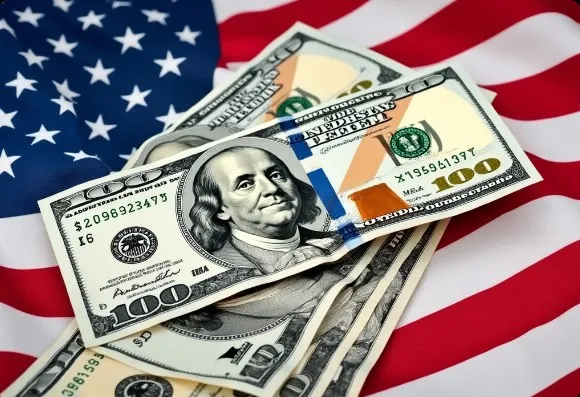

A forward contract is an agreement between two parties to buy or sell an asset at a specified price at a fixed date in the future. This investing strategy is a bit more complex and may not be used by the everyday investor. Forward contracts are not the same as futures contracts. Here’s a breakdown of what they are and some pros and cons to consider.
A financial advisor can walk you through different investing strategies for you your portfolio.
A forward contract is a type of derivative. A derivative is an investment contract between two or more parties whose value is tied to an underlying asset or set of assets. For example, commodities, foreign currencies, market indexes and individual stocks can all be underlying assets for derivatives.
In a forward contract, the buyer and seller agree to buy or sell an underlying asset at a price they both agree on at an established future date. This price is called the forward price. This price is calculated using the spot price and the risk-free rate. The former refers to an asset’s current market price. The risk-free rate is the hypothetical rate of return on an investment, assuming there’s zero risk.
In a forward contract, the buyer takes a long position while the seller takes a short position. The idea behind forward contracts is that the parties involved can use them to manage volatility by locking in pricing for the underlying assets. In that sense, a forward contract is a way to hedge against market uncertainty.

The simplest way to understand how forward contracts work is by using an example.
Let’s say the owner of an orange grove has 500,000 bushels of oranges that will be ready for sale in three months’ time. However, there’s no way to know exactly how the price of oranges might change in the commodities market between now and then. By entering into a forward contract with a buyer, the orange grower can lock in a set price per bushel for when it’s time to sell the crop.
The spot price of oranges is what determines how this works out for the buyer and seller. The contract is fulfilled if the per bushel price at the time of sale is the same as the specified contract price. If the contract reaches its end and the spot price has increased, the seller would have to pay the buyer the difference between the forward price and the spot price. If the spot price has fallen below the forward price, the buyer would have to pay the difference to the seller.
When the contract ends, it has to be settled based on the terms. Every forward contract can have different terms. These types of derivatives aren’t traded on an exchange like a stock. Instead, they’re over-the-counter investments. This means they tend to be used primarily by institutional investors, such as hedge funds or investment banks, and are less accessible to individual retail investors.
There are two ways for a settlement to occur in a forward contract: delivery or cash basis. If the contract is on a delivery basis, the seller must transfer the underlying asset or assets to the buyer. The buyer then pays the seller the agreed-upon price in cash. When a contract is settled on a cash basis, the buyer still makes the payment on the settlement date but no assets change hands. This payment amount is determined by the difference between the current spot price and the forward price.
This assumes that there is a difference between the two prices at settlement. If there’s no change and they’re the same, then the contract is settled without an exchange of cash.
The advantage for the seller in a forward contract is the ability to lock in pricing for a particular asset. This allows you to manage risk by ensuring that you’re able to sell the asset at a target price of your choosing.
For the buyer, forward contracts can also be a way to lock in pricing. For example, if you own an orange juice company, a forward contract could enable you to buy the orange supply you need to continue making juice at a set price. This can be useful in managing costs and projecting future revenues.
On both sides of the transaction, the goal is to create a hedge against volatility and build in some certainty surrounding pricing. This makes forward contracts highly speculative, since there’s no way to predict with absolute accuracy which way prices for an asset or group of assets will move over the duration of the contract. This is also why forward contracts are most often used in connection with assets that can experience wide pricing swings, such as wheat, precious metals, beef and foreign currencies.
Futures contracts are also a type of derivative, but they aren’t identical to forward contracts. They also allow two parties to agree to buy or sell an asset at a specified price in the future. There are three key features that distinguish them from forward contracts.
Another key difference centers on risk and how it’s managed by a clearing house. A clearing house is a middle man between the buyer and seller in an investment transaction. It’s responsible for making sure the contract is settled appropriately.
Futures contracts go through a clearing house; forward contracts do not. This means that both parties involved in the forward contract accept a higher degree of credit risk. The risk is that one side or the other could default on the terms of the agreement. One way to offset this risk is building a premium into the forward contract to cover the possibility of default.

Forward contracts serve a purpose for both buyers and sellers in managing volatility associated with commodities and other alternative investments. They tend to be riskier for both parties involved because they’re over-the-counter investments. Although similar, they’re not to be confused with futures contracts. Those are more accessible to everyday investors who want to look beyond stocks and bonds for building a portfolio.
Photo credit: ©iStock.com/scyther5, ©iStock.com/FangXiaNuo, ©iStock.com/artisteer
Rebecca Lake, CEPF®Rebecca Lake is a retirement, investing and estate planning expert who has been writing about personal finance for a decade. Her expertise in the finance niche also extends to home buying, credit cards, banking and small business. She's worked directly with several major financial and insurance brands, including Citibank, Discover and AIG and her writing has appeared online at U.S. News and World Report, CreditCards.com and Investopedia. Rebecca is a graduate of the University of South Carolina and she also attended Charleston Southern University as a graduate student. Originally from central Virginia, she now lives on the North Carolina coast along with her two children. Rebecca also holds the Certified Educator in Personal Finance (CEPF®) designation.
Read More About Investing



More from SmartAsset
SmartAsset Advisors, LLC ("SmartAsset"), a wholly owned subsidiary of Financial Insight Technology, is registered with the U.S. Securities and Exchange Commission as an investment adviser. SmartAsset's services are limited to referring users to third party advisers registered or chartered as fiduciaries ("Adviser(s)") with a regulatory body in the United States that have elected to participate in our matching platform based on information gathered from users through our online questionnaire. SmartAsset receives compensation from Advisers for our services. SmartAsset does not review the ongoing performance of any Adviser, participate in the management of any user's account by an Adviser or provide advice regarding specific investments.
We do not manage client funds or hold custody of assets, we help users connect with relevant financial advisors.
This is not an offer to buy or sell any security or interest. All investing involves risk, including loss of principal. Working with an adviser may come with potential downsides such as payment of fees (which will reduce returns). There are no guarantees that working with an adviser will yield positive returns. The existence of a fiduciary duty does not prevent the rise of potential conflicts of interest.